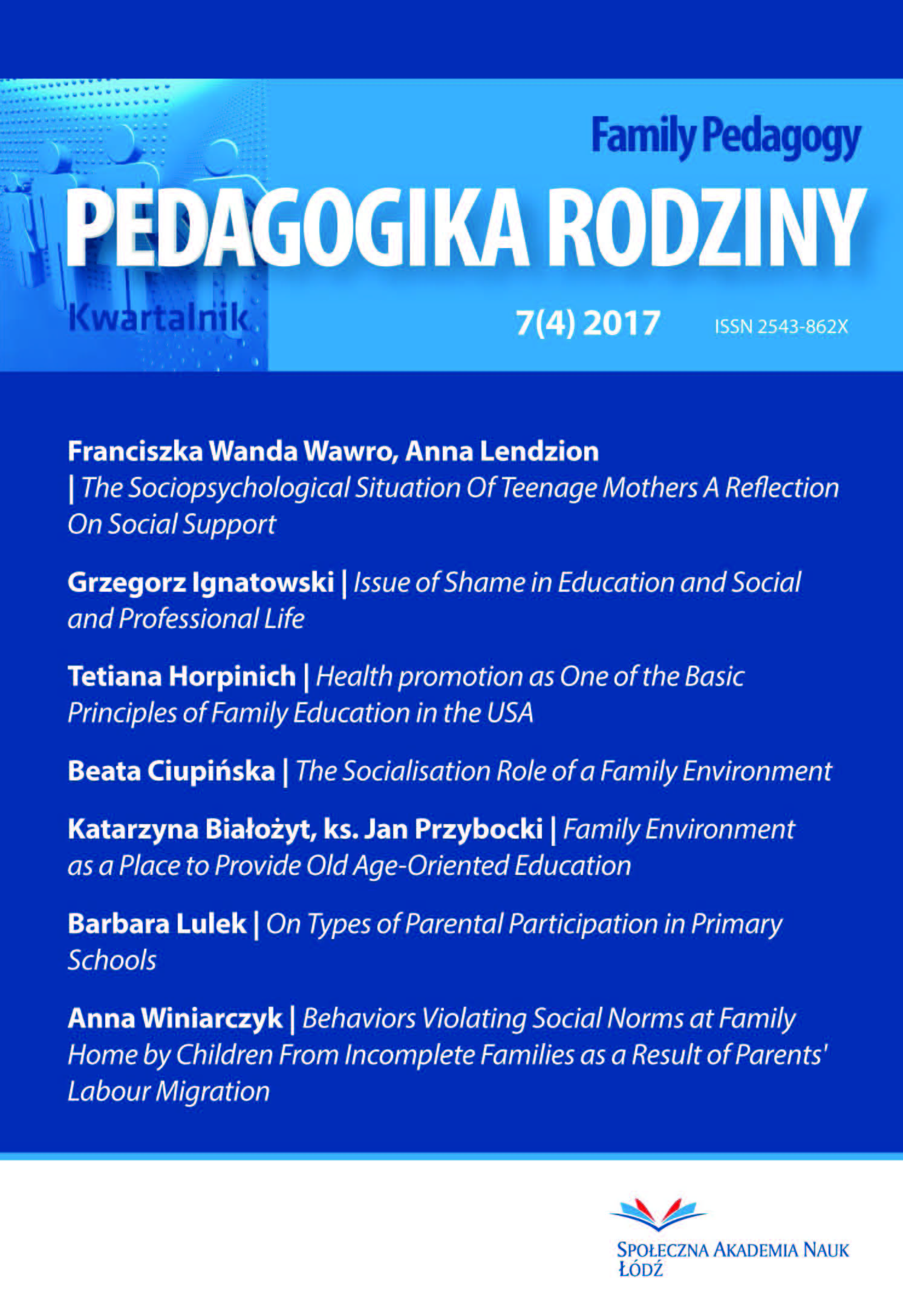Families’ Experience of Intellectual Disability and the Level of Empathy in Adolescents
Families’ Experience of Intellectual Disability and the Level of Empathy in Adolescents
Author(s): Anna Bujnowska, Agnieszka Lasota, Dorota ZdybelSubject(s): Family and social welfare
Published by: Społeczna Akademia Nauk
Keywords: empathy; sibling of a mentally disabled person; family with a disabled child
Summary/Abstract: The development of empathy is fostered by a properly functioning family whose aim is to satisfy the emotional needs of children, to encourage them to experiencea wide range of emotions, as well as to offer opportunities to observe and participate in social interactions that develop emotional sensitivity. The lack of satisfaction with the internal family relations and particular patterns of interactions may hinder the development of positive emotional behavior, such as empathy, understanding, altruism,or compassion. It is interesting to explore, therefore, whether a mentally disablesingling influences the level of cognitive empathy among young people. The author’sown research employed the “Empathic Understanding of Others Questionnaire” designed by Węgliński [1987]. The study group consisted of 100 families, out of which 50had a child with a mental disability.
Journal: Pedagogika Rodziny
- Issue Year: 7/2017
- Issue No: 4
- Page Range: 185-199
- Page Count: 15
- Language: English

